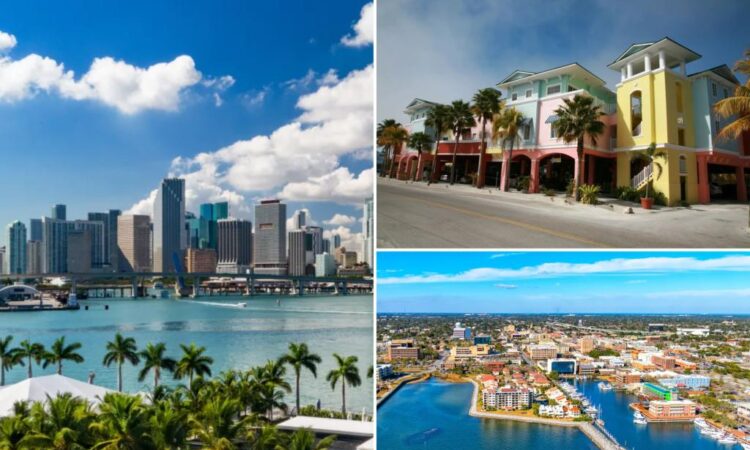
Florida, with its miles of coastline along the Atlantic Ocean and the Gulf of Mexico, draws more than 140 million tourists annually and entices many to settle in the sunny state.
However, despite its appealing climate, numerous activities and no state income tax, Yawar Charlie, a senior real estate agent and director of the Aaron Kirman Group’s estates division, urges potential buyers to be cautious.
“When it comes to real estate, not every sunny spot in the Sunshine State is a wise investment,” Charlie told Go Banking Rates.
Charlie, also a cast member of CNBC’s “Listing Impossible,” emphasizes, “Investing in real estate is about more than just sunshine and palm trees. It’s crucial to look at economic stability, growth potential and environmental risks.”
He advises that before being seduced by Florida’s warm weather, one should consider the financial forecast. “Being well-informed and strategic will help you spot the true gems in the market,” he said.
Based in Los Angeles, Charlie’s extensive client base spans both California and Florida, providing him with deep insights into both real estate markets. He identified five Florida cities where he recommends holding off on property investments for the next five years.
Miami Beach
While Miami Beach is famous for its pristine beaches, vibrant nightlife and world-class dining, Charlie advises against buying property there.
“Yes, Miami Beach is glamorous, but the rising sea levels and increasing frequency of hurricanes pose significant risks,” he said.
“The cost of insuring properties is soaring, and the potential for long-term value depreciation is real. It’s like buying a beautiful beachfront home with a ticking time bomb in the basement.”
Daytona Beach
Daytona Beach, known for its 23 miles of white-sand beaches and affordability, may seem attractive, but Charlie warns against investing there.
“While it may be famous for its speedway, Daytona Beach struggles with economic stagnation and high crime rates,” he said.
According to Neighborhood Scout, one in 28 people have a chance of becoming a victim of a violent or property crime.
“The real estate market has been sluggish, and without major economic development, property values are likely to remain flat. Investing here might leave you feeling stuck in the pit stop.”
Fort Myers
Fort Myers, a favored spot for retirees, also faces challenges.
“Despite its appeal to retirees, Fort Myers faces issues with overdevelopment and environmental concerns, particularly regarding water quality,” Charlie said.
“The housing market has been volatile, and long-term growth prospects are uncertain. It’s a bit like buying a flashy car that might just run out of gas.”
Pensacola
Pensacola’s picturesque turquoise and white sandy beaches are inviting, but Charlie advises caution.
“This city has faced economic challenges and limited job growth, which impacts the housing market,” he said.
“High crime rates and a lack of new development projects make it less appealing to investors.”
Neighborhood Scout reports that crime in Pensacola is 86% higher than in other cities in the state, with one in 33 people having a chance of becoming a victim of a violent or property crime.
“Investing here could feel like trying to catch a wave in a kiddie pool,” Charlie said.
Ocala
Ocala, known for its pretty, clean, and budget-friendly environment, also presents risks.
“Ocala has one of the highest crime rates in America compared to all communities of all sizes,” according to Neighborhood Scout.
Charlie added, “While affordable, Ocala’s real estate market is hindered by slow economic growth and limited amenities. The area is heavily reliant on agriculture, which can be volatile.”
“It’s a quiet town, but that tranquility might come at the cost of your investment’s growth. Think of it as putting your money into a time capsule with no guarantee of future rewards.”




